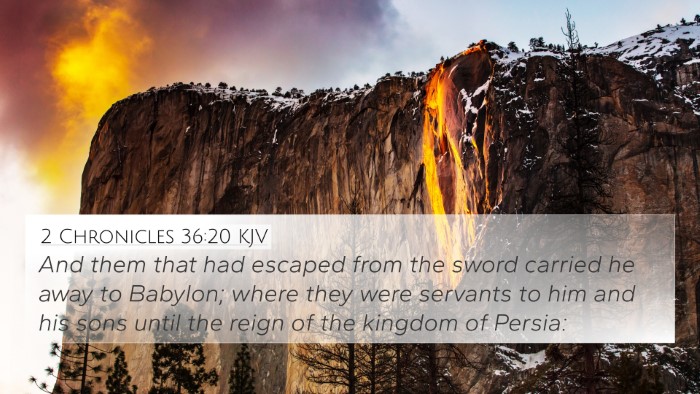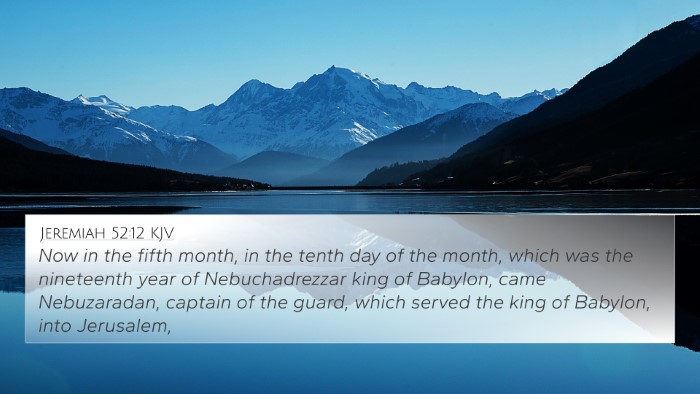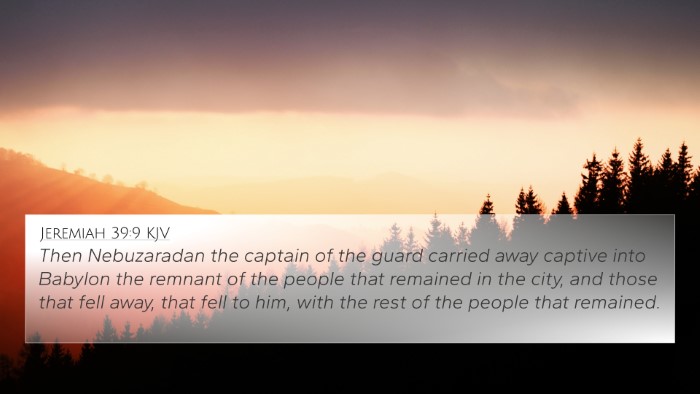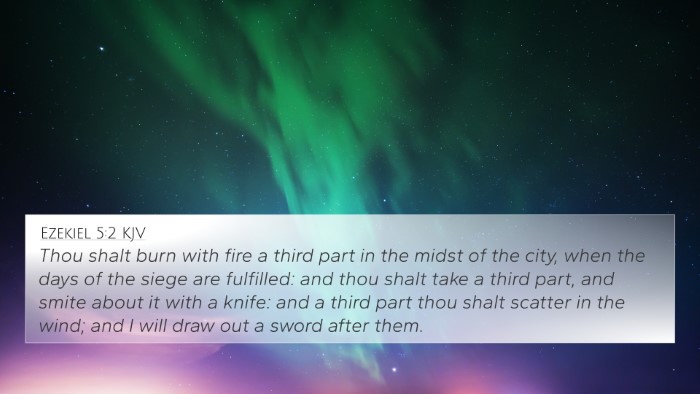Understanding 2 Kings 25:11
Bible Verse: 2 Kings 25:11 - "Now the rest of the people that were left in the city, and the fugitives that fell away to the king of Babylon, and the rest of the multitude, Nebuzaradan the captain of the guard carried away captive."
Summary of Meaning
This verse concludes the narrative surrounding the fall of Jerusalem, highlighting the aftermath of the city’s destruction. It emphasizes the fate of the remaining inhabitants and the captives taken by Nebuzaradan, indicating the severe consequences of disobedience and God's judgment.
Analysis from Public Domain Commentaries
Matthew Henry's Commentary
Henry notes that this verse illustrates the finality of the destruction of Jerusalem, pinpointing the various groups affected: the remaining citizens, those who fled, and the captives. He stresses that God’s judgment is not arbitrary but rooted in the persistent rebellion of the people against God’s commands. The mention of Nebuzaradan serves as a reminder that Babylon was an instrument of divine wrath.
Albert Barnes' Commentary
Barnes emphasizes the significance of the captain of the guard, Nebuzaradan, in this context. He points out the strategic and military implications of the deportation, reflecting the power dynamics at play. The capturing of the multitude signifies that few remained to witness the city’s history, cementing the catastrophic outcome of Israel's infidelity to God.
Adam Clarke's Commentary
Clarke elaborates on the moral and ethical ramifications of the text. He highlights the plight of the captives and the rest of the people left behind, noting a divide between those who chose to subjugate themselves to Babylon and those taken forcibly. Clarke discusses the psychological impact on the people and the long-term implications of exile for Israel’s identity.
Cross-References and Thematic Connections
This verse is interlinked with several other scriptures that provide a broader context and deeper understanding. Here are some notable cross-references:
- Jeremiah 39:9-10: Details the Babylonian captivity and the fate of the inhabitants.
- 2 Kings 24:14: Mentions the initial exiles taken before the city's fall.
- Lamentations 1:3: Depicts the sorrow of the exiled inhabitants.
- Daniel 1:1-2: Discusses the fall of Jerusalem and the captives taken to Babylon.
- Ezekiel 4:1-3: Symbolic actions representing Jerusalem's siege and eventual desolation.
- Psalm 137:1-4: A lament of the exiled Israelites reflecting on Zion.
- Isaiah 39:6-7: Foretelling the exile of Jewish people to Babylon.
Thematic Connections
This scripture can prompt a comparative Bible verse analysis surrounding themes like judgment, exile, and restoration. Here are some thematic insights:
- Divine Judgment: This verse encapsulates the consequences of Israel's disobedience to God, drawing parallels to other biblical accounts of judgment (e.g., the flood in Genesis).
- Exile and Restoration: The idea of exile appears frequently in Scripture, seen in other cross-references such as those relating to the Babylonian Exile, and the prophetic promises of return (e.g., Isaiah 40).
- Hope Amidst Despair: The overarching narrative of exile often incorporates themes of hope and redemption, echoed in New Testament teachings (e.g., Romans 15:4).
Using Cross-References for Study
Finding cross-references can deepen one's understanding of Scriptures. Here are tools to assist:
- Using a Bible concordance can help locate themes and words across different passages.
- A cross-reference Bible study guide can offer structured links between verses.
- Engaging in cross-referencing Bible study methods can enhance comprehension of thematic elements.
Conclusion
2 Kings 25:11 serves as a pivotal point in the narrative of Israel’s history, echoing themes of judgment, exile, and the hope of eventual restoration. Through comprehensive study and cross-referencing, one can gain deeper insights into God's workings and the significance of these events in biblical history.









